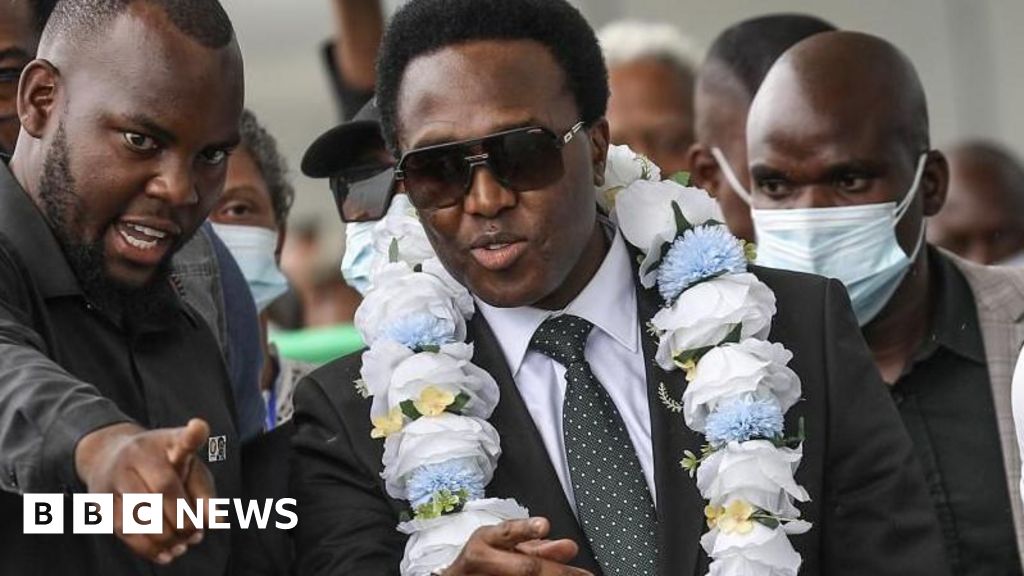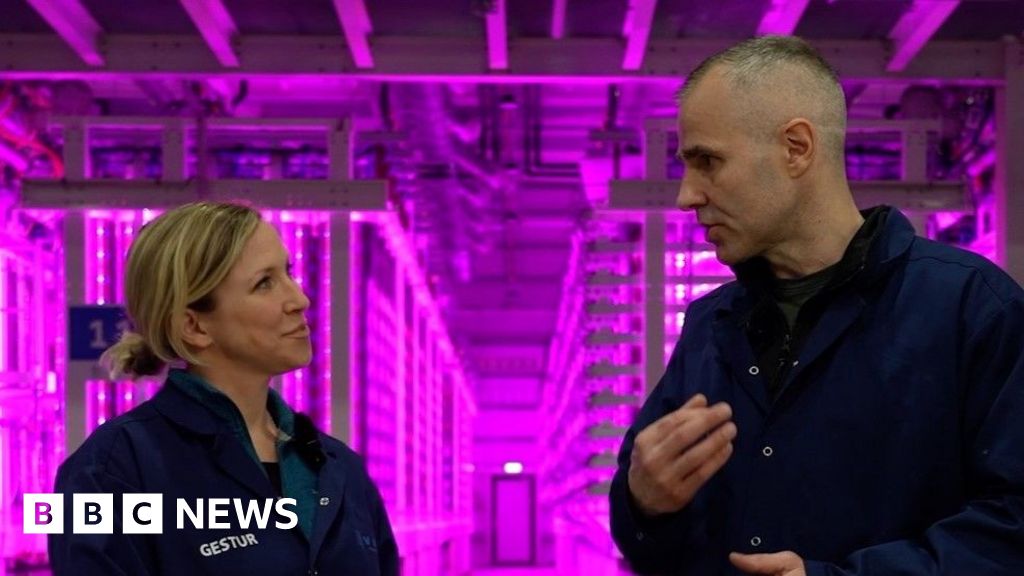ARTICLE AD BOX
Image source, Getty Images
Image caption,South Korea is one of the most sleep-deprived nations on Earth
South Korea is one of the most sleep deprived nations on earth, and it has taken a massive toll on its population. The BBC's Chloe Hadjimatheou reports.
Ji-Eun began having trouble sleeping when her office hours became so gruelling she couldn't relax any longer.
On average she worked from 07:00 until around 22:00 but on particularly busy days, the 29-year-old public relations officer would find herself in the office until three in the morning.
Her boss often called in the middle of the night, requesting something be done right away.
"It was almost like I forgot how to relax," she says.
At the Dream Sleep Clinic in the glitzy Gangnam district of Seoul, Dr Ji-hyeon Lee, a psychiatrist specialising in sleep, says she often sees clients who take up to 20 sleeping pills a night.
"It usually takes time to fall asleep, but Koreans want to sleep real quick and so they take medication," she says.
Addiction to sleep medication is a national epidemic. There are no official statistics but it is estimated 100,000 Koreans are addicted to sleeping pills.
When they still can't sleep they often resort to drinking alcohol on top of the medication - with dangerous consequences.
Dr Ji-hyeon Lee, a sleep disorder psychiatrist, says she sees clients who take up to 20 sleeping pills a night
''People sleep walk. They go to the refrigerator and eat a lot of things unconsciously, including uncooked food,'' Dr Lee says. ''There were even cases of car accidents in the centre of Seoul caused by a sleepwalking patient.''
Dr Lee is used to seeing chronic insomniacs suffering from what is known as hypo-arousal. Some of her patients tell her it has been decades since they have slept for more than a few hours a night.
''They cry [but] still hold a single thread of hope [when they come here]. It's a really sad situation,'' she says.
Overworked, stressed out and sleep deprived
South Korea is one of the most sleep deprived nations on earth. It also has the highest suicide rate among developed nations, the highest consumption of hard liquor and a huge number of people on antidepressants.
There are historic reasons for these statistics.
In just a few decades the country has gone from being one of the poorest countries on earth to one of the world's most technologically advanced nations. It also wields considerable soft power, with its growing influence on pop culture.
Nations with a similar trajectory, like Saudi Arabia and the UAE, could tap into their natural resources, but Korea has no such hidden wealth. It transformed itself through the sheer dedication of a population driven by a collective nationalism pushing them to work harder and faster.
Image source, Getty Images
Image caption,An increasing number of young South Koreans have been seeking help for their sleep disorders
One result is that its people are overworked, stressed out and sleep deprived.
Now, an entire industry has grown around catering to those who can't sleep - with the sleep industry estimated to be worth $2.5bn in 2019.
The burgeoning sleep-aid industry
In Seoul, whole department stores are devoted to sleep products, from the perfect sheets to the optimum pillow, while pharmacies offer shelves full of herbal sleep remedies and tonics.
And then there are the tech approaches to insomnia. A little over two years ago Daniel Tudor started a meditation app - Kokkiri - aimed at helping stressed out young Koreans.
Although Korea is historically a Buddhist country, young people think of meditation as an old person's pastime, not something an office worker in Seoul might do. Daniel says he had to re-import and re-package meditation as a Western idea for young Koreans to find it attractive.
More traditional institutions have also joined in on the action.
Hyerang Sunim is a Buddhist nun who helps run a Temple-Stay retreat on the edge of Seoul where the sleep-deprived can engage in meditation and absorb Buddhist teachings.
Buddhist temples, who often run sleep retreats, have been criticised for profiting off people with sleep disorders
In the past these kinds of mini-breaks were reserved for retirees who wanted teachings and prayer. Now the participants tend to be younger, working-age Koreans. But these same Buddhist temples have also been criticised for making a profit from such retreats.
''Of course there are concerns… but I think the benefits outweigh them,'' said Hyerang Sunim.
''Traditionally it has been rare to see young people come and seek the Buddhist teachings. And they are getting a lot out of their interactions with the temple stay.''
The need for fundamental change
Lee Hye-ri, who attended one such Buddhist retreat after the pressure at work became too much, says she has learned to take responsibility for her stress.
''Everything starts from me, all problems start with me. That's what I learned here.''
But framing the solution to stress and sleep deprivation as something to be dealt with at the individual level can be problematic.
Those who believe the problem is caused by an unreasonable work culture and societal pressures have criticised this individualistic approach saying it is tantamount to victim-blaming. These critics say meditation or relaxation is a sticking plaster and that real solutions can only come about through fundamental changes to society.
Ji-Eun was eventually so sleep deprived and stressed that she quit her job. These days she works far more reasonable hours as a freelancer and the pandemic means she can work from home. She has also sought professional help at Dr Lee's sleep clinic to manage her insomnia.
''What's the point of working so hard now that we've made it as a country?'' Ji-Eun says. ''We should be able to relax.''
You may also be interested in:
Students in South Korea are sitting one of the hardest exams in the world

 2 years ago
27
2 years ago
27








 English (US) ·
English (US) ·